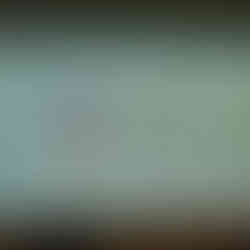ニュースの過去・現在・未来ーメディアのIn&Out ~News Then,Now,and Beyond – Internet In, Traditional Media Out~を開催しました
- Eiko Aihara
- 2025年8月19日
- 読了時間: 3分

中日新聞論説主幹の島田佳幸さんをお招きし、「ニュースの過去・現在・未来 新聞が消える日 メディアのIn and Out」と題したセミナーを開催しました。
講演では、テレビや新聞といったオールドメディアの衰退と、オンラインニュースをはじめとするインターネットメディアの台頭について語られました。日本の新聞は、プロの記者による取材というフィルターを通すことで「信頼」を築いてきましたが、ネットニュースはスピードや刺激を優先し、目を引く面白い話題が瞬く間に拡散します。その結果、受け手は見聞きしたことをそのまま受け止め、アルゴリズムによって自分の関心に近いニュースばかりを目にする傾向が強まっているといいます。
さらに、日本ではオンラインニュースに対価を支払う文化が根付いていない現状も紹介されました。また、最近の選挙では、メディアへの距離感の違いーーすなわち、オールドメディアとの親和性が高い人は既成政党へ、ネットメディアとの親和性が高い人は新興政党へ投票するーーといった傾向が見られるとのことです。
質疑応答では「昔も週刊誌などでセンセーショナルな報道はあったが、今と何が違うのか」という質問が出されました。島田氏は、以前は読者に「行間を読む力」や情報を見抜く力があり、メディアを一定程度選別していたと指摘しました。現在は、情報拡散の手段が増え、玉石混交の情報があふれるなかで、読者の情報リテラシーや理解度が低下しているのではないかと述べました。
ニュースの信頼性や受け手の姿勢が問われる時代に、何をどう選び、どう読み解くのか。本セミナーは、私たちの情報との向き合い方を改めて考えるきっかけとなりました。
We hosted a seminar featuring Yoshiyuki Shimada, Chief Editorial Writer at The Chunichi Shimbun, titled “News Then, Now, and Beyond – Internet In, Traditional Media Out.”
During his talk, Mr. Shimada discussed the decline of so-called “old media” such as television and newspapers, and the increasing influence of internet-based media, such as online news outlets. Japanese newspapers have long built their credibility through the professional journalism, with reporters acting as filters in the information-gathering process. In contrast, online news prioritizes speed and sensational impact, with eye-catching stories spreading instantly. Consequently, audiences are increasingly likely to take what they see or hear at face value and, driven by algorithms, encounter only news that closely aligns with their personal interests.
Mr. Shimada also pointed out that Japan still lacks a strong culture of paying for online news. In recent elections, people with a stronger affinity for old media tended to vote for established political parties, while those more attuned to online media tended to support new parties.
During the Q&A session, an audience member asked, “In the past, there were also sensational stories in weekly magazines—how is today different?” Mr. Shimada responded that readers once had a greater ability to “read between the lines” and to discern reliable information. To a certain extent, they were also selective about the media they consumed. Today, however, with more channels for disseminating information, society is flooded with both facts and falsehoods, and declining information literacy may be lowering people’s overall understanding.
In an era when both the credibility of news and the stance of its audience are both being tested, the seminar offered an opportunity to reflect on what we choose to read, how we interpret it, and how we engage with the information in general.











コメント